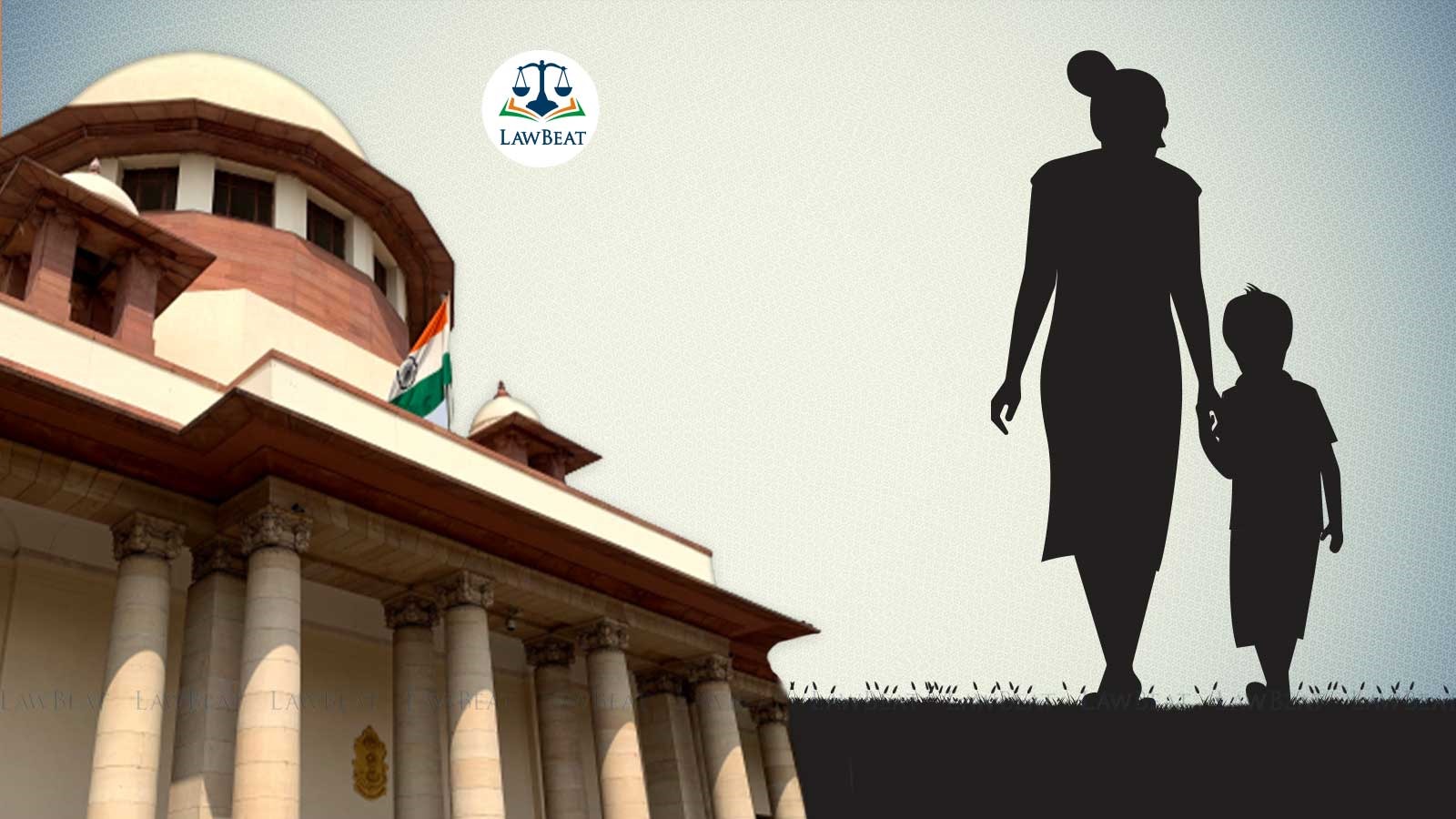Two-Year Child Care Leave Constitutional Entitlement of Working Women: SC

Court said the policies of the State have to be consistent and must be synchronised with constitutional protections and safeguards
The Supreme Court has said that two-year child care leave for a working woman in addition to 180-day maternity leave is constitutional entitlement for a working woman as it subserves the significant constitutional object of ensuring that they are not deprived of their due participation as members of the workforce.
A bench of Chief Justice of India D Y Chandrachud and J B Pardiwala said in the absence of a provision for the grant of Child Care Leave, a mother may well be constrained to leave the workforce. This consideration applies a fortiori in the case of a mother who has a child with special needs, the court noted.
"The participation of women in the workforce is not a matter of privilege, but a constitutional entitlement protected by Articles 14, 15 and 21 of the Constitution; besides Article 19(1)(g). The State as a model employer cannot be oblivious to the special concerns which arise in the case of women who are part of the workforce. The provision of Child Care Leave to women subserves the significant constitutional object of ensuring that women are not deprived of their due participation as members of the workforce," the bench said.
The court was hearing a plea by Shalini Dharmani, an Assistant Professor at the Department of Geography in Government College, Nalagar.
The petitioner was denied Child Care leave for her 14-year-old son who suffered from rare genetic disorder Osteogenesis Imperfecta and had undergone several surgeries since birth. The boy required continuous treatment and surgical intervention to survive and lead a normal life. Due to the treatment of her son, the petitioner had exhausted all her sanctioned leave.
According to Rule 43-C of the Central Civil Service (Leave) Rules 1972, a woman Government servant having minor children below the age of eighteen years and who has no earned leave at her credit, may be granted child care leave by an authority competent to grant leave, for a maximum period of two years, i.e., 730 days during the entire service for taking care of upto two children whether for rearing or to look after any of their needs like examination, sickness, etc.
By an Office Memorandum of March 3, 2010, the Union Government resolved to permit Child Care Leave for women employees with differently abled children up to the age of twenty-two years (instead and in place of eighteen years) subject to the conditions stipulated by the government in this regard from time to time.
However, since the State of Himachal Pradesh has not adopted provisions for Child Care Leave, the petitioner was informed such leave could not be sanctioned to her.
After making a representation on December 26, 2018, the petitioner instituted a writ petition before the High Court of Himachal Pradesh under Article 226 of the Constitution seeking a direction for the adoption of the CCS (Leave) Rules. The writ petition was dismissed by the High Court on April 23, 2021 on the ground that Rule 43-C had been deleted by the State of Himachal Pradesh.
The court noted that the petition raised a serious matter of concern as the petitioner had also relied on the provisions of the Rights of Persons with Disabilities Act 2016.
"We are conscious of the fact that the petition does trench on certain aspects of policy. Equally, the policies of the State have to be consistent and must be synchronised with constitutional protections and safeguards," the bench said.
However, the bench felt, "We are of the view that the State of Himachal Pradesh must be directed to reconsider the entire aspect of the grant of Child Care Leave to mothers, including making special provisions consistent with the objects and purpose of the RPWD Act to mothers who are bringing up children of special needs."
The court ordered that a committee chaired by the Chief Secretary of the State of Himachal Pradesh should be constituted to look into all aspects of the matter.
It further directed the committee should engage with the Secretary of the Department of Women and Child Development and the Secretary in the Social Welfare Department (Department of Empowerment of Persons with Disabilities) of the Union Government.
The Committee shall place its report before the competent authority so that a considered policy decision is taken expeditiously. The report of the Committee shall be prepared by July 31, 2024 and submitted to this Court as well, the bench directed.
The court allowed the petitioner to implead Union government as a party to these proceedings and requested Aishwarya Bhati, Additional Solicitor General to assist it in the matter.
"In the meantime, pending further orders, the application by the petitioner for the grant of special leave under Rule 32 of the CCS (Leave) Rules shall be favorably considered by the competent authorities," the bench ordered, fixing the matter for consideration on August 5, 2024.
